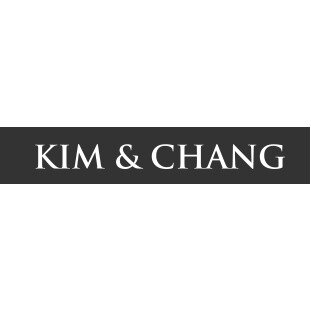Best Acquisition / Leveraged Finance Lawyers in South Korea
Share your needs with us, get contacted by law firms.
Free. Takes 2 min.
Or refine your search by selecting a city:
List of the best lawyers in South Korea
About Acquisition / Leveraged Finance Law in South Korea
Acquisition and leveraged finance refers to the legal and financial structures that help companies or investors fund the purchase of businesses, mainly using debt. In South Korea, this area of law has grown significantly with the increase in mergers and acquisitions (M&A) activities, especially those funded by bank loans, bonds, or other financial products. Leveraged finance is distinct for its reliance on the target company's assets and cash flows as security or repayment sources. Law firms, banks, and companies often collaborate to structure transactions within strict legal and regulatory frameworks to mitigate risk and ensure compliance.
Why You May Need a Lawyer
Seeking legal guidance in acquisition or leveraged finance matters can be crucial for several reasons. These transactions are complex and highly regulated. Common situations where you may need a lawyer include:
- Planning or executing the acquisition of a business or assets in South Korea
- Structuring or negotiating debt financing for M&A deals
- Ensuring compliance with South Korean financial and corporate regulations
- Drafting or reviewing facility agreements, intercreditor agreements, or security documents
- Conducting legal due diligence on the target entity or assets
- Managing risks related to cross-border transactions and foreign exchange restrictions
- Navigating regulatory approvals from financial and government authorities
Specialist lawyers help clients avoid legal pitfalls, save costs, and facilitate smoother, compliant transactions.
Local Laws Overview
South Korea's acquisition and leveraged finance landscape is shaped by several key laws and regulations. Notably, the Financial Investment Services and Capital Markets Act (FSCMA) regulates securities offerings and financial instruments, while the Monopoly Regulation and Fair Trade Act (MRFTA) oversees antitrust issues related to M&A. The Corporate Restructuring Promotion Act, Commercial Code, and foreign exchange regulations also play important roles.
Key legal aspects include:
- Limitations on debt-to-equity ratios for Korean companies
- Secured lending rules and registration requirements for collateral
- Foreign exchange regulations governing inbound and outbound capital movement
- Mandatory filings and approvals for large-scale acquisitions
- Shareholder protection rules and disclosure requirements
- Restrictions on acquisition financing for certain regulated industries such as finance, telecoms, and defense
- Bankruptcy and insolvency rules affecting lender rights in leveraged transactions
These frameworks are enforced by entities such as the Financial Services Commission, the Financial Supervisory Service, and the Fair Trade Commission.
Frequently Asked Questions
What is leveraged finance in the context of South Korea?
Leveraged finance refers to funding an acquisition primarily through borrowed funds, often using the target company’s assets or future cash flows as collateral or repayment sources. This is common in private equity and large corporate M&A deals in South Korea.
Are there restrictions on the amount of debt that can be used in acquisition financing?
Yes, South Korean law and loan agreements often impose limitations on debt-to-equity ratios, particularly for public companies or those in regulated sectors. Lenders may also have internal policies on leverage limits.
Do foreign investors face special considerations in Korean acquisition finance?
Foreign investors must comply with the Foreign Exchange Transaction Act and notification or approval requirements when bringing capital into or out of South Korea. Acquisitions of large companies or those in certain industries may need additional approvals.
What kinds of security can be used in South Korean leveraged finance?
Common forms of security include pledges over shares, mortgages over real estate, assignments of receivables, and security interests in intellectual property and moveable assets. Some security interests require public registration to be effective against third parties.
How long does it take to close a leveraged acquisition in South Korea?
It varies depending on deal complexity, regulatory approvals, and due diligence. Simple deals may close in a few months, while complex or regulated transactions can take six months or longer.
What are the tax implications of acquisition finance?
South Korean tax law includes rules on withholding tax for interest payments to non-resident lenders and stamp duties for certain agreements. The deductibility of interest expenses may be limited by thin capitalization rules.
Are there specific rules for public company acquisitions?
Yes, public company acquisitions must comply with disclosure obligations, tender offer regulations, and, in some cases, mandatory acquisition thresholds and pricing rules under the FSCMA.
How are cross-border leveraged acquisitions regulated?
Cross-border transactions are subject to both Korean law and the laws of the other involved jurisdiction. Korean rules on foreign exchange, antitrust, and national security may require advance filings or approvals.
What happens if the borrower defaults on acquisition finance?
Lenders have rights under contract and law to enforce security, initiate insolvency proceedings, or restructure the debt. Enforcement may be subject to procedural steps such as notices or court actions.
Why is due diligence important in acquisition finance?
Due diligence helps identify legal risks, such as undisclosed liabilities, regulatory issues, or defects in security. It gives both lenders and borrowers a clearer view of potential challenges and informs deal structuring.
Additional Resources
If you are looking for more information or assistance, consider the following resources:
- Financial Services Commission (FSC): Regulator for financial markets and investments
- Financial Supervisory Service (FSS): Supervises banks and non-bank financial institutions
- Fair Trade Commission (KFTC): Handles matters related to M&A review and antitrust
- Korea Exchange (KRX): Offers information about listed companies and public disclosures
- Local chambers of commerce: Some provide legal and business advisory services
- Legal Aid providers and bar associations: Can recommend specialist law firms or practitioners
Next Steps
If you need legal assistance in acquisition or leveraged finance in South Korea, start by defining your objectives and gathering relevant documentation about the transaction. Next, search for law firms or legal practitioners with recognized expertise in this field. Consider arranging consultations to discuss your situation, required services, and estimated timelines and fees.
During your initial discussion, be clear about your needs, share all relevant information, and ask about the lawyer’s experience in similar transactions. Preparing your questions in advance will help you make the most of your consultation. If your transaction involves cross-border elements, ensure your lawyer has expertise in international finance and foreign investment too. Acting early and seeking specialist advice can make a significant difference in achieving a successful and compliant outcome.
Lawzana helps you find the best lawyers and law firms in South Korea through a curated and pre-screened list of qualified legal professionals. Our platform offers rankings and detailed profiles of attorneys and law firms, allowing you to compare based on practice areas, including Acquisition / Leveraged Finance, experience, and client feedback.
Each profile includes a description of the firm's areas of practice, client reviews, team members and partners, year of establishment, spoken languages, office locations, contact information, social media presence, and any published articles or resources. Most firms on our platform speak English and are experienced in both local and international legal matters.
Get a quote from top-rated law firms in South Korea — quickly, securely, and without unnecessary hassle.
Disclaimer:
The information provided on this page is for general informational purposes only and does not constitute legal advice. While we strive to ensure the accuracy and relevance of the content, legal information may change over time, and interpretations of the law can vary. You should always consult with a qualified legal professional for advice specific to your situation.
We disclaim all liability for actions taken or not taken based on the content of this page. If you believe any information is incorrect or outdated, please contact us, and we will review and update it where appropriate.
Browse acquisition / leveraged finance law firms by city in South Korea
Refine your search by selecting a city.















